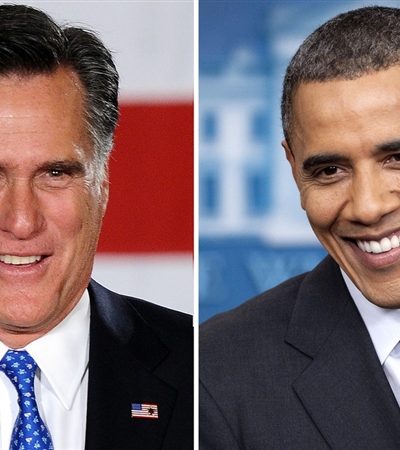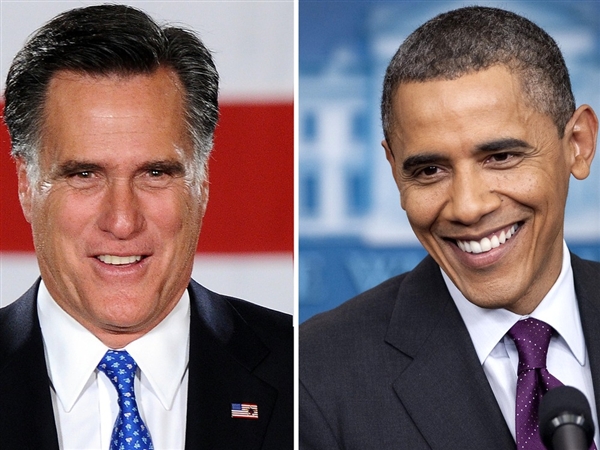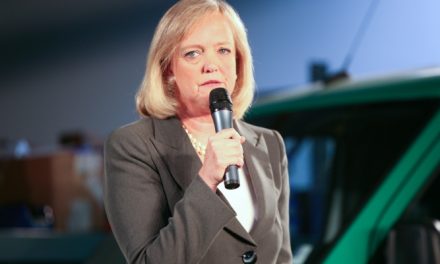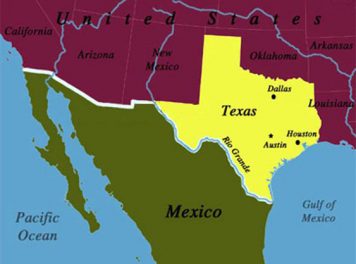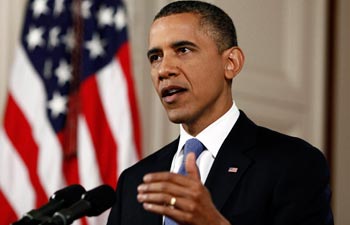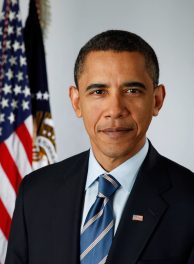By Tom Cohen, CNN
September 10, 2012 Mitt Romney strengthened his attacks on President Barack Obama today in the face of a new CNN/ORC International poll that indicated the Republican challenger in November is losing ground after last week’s Democratic National Convention.
“He wants to fundamentally transform America,” an energetic Romney said of Obama in the vital battleground state of Ohio, accusing the president of moving the country toward a debt-laden, big government society similar to failing European nations like Greece.
Noting that “forward” is Obama’s campaign slogan, Romney said to cheers that “forewarned” would be more appropriate.
“We know what would happen if he were re-elected,” Romney shouted. “We’d see more years of high unemployment. We’d see more years of massive deficits. We’d see more years of almost no wage growth in this country. We’d see more years of a nation at the cusp of the kind of crisis you’re seeing in Europe.”
Opinion: Three hurdles for Obama, Romney
Romney also repeatedly tried to blame Obama for possible mandatory cuts in military spending at the end of the year under a budget deal passed last year by Congress with strong Republican support.
“This sequestration idea emanated from the White House and it will result in the loss of thousands and thousands and hundreds of thousands of jobs across this country,” Romney said. “It will be bad for employment if it goes forward. It will also be bad for our national security.”
While the rhetoric was similar to past criticism of Obama, Romney’s tone sounded more urgent with less than two months until Election Day and the latest polls showing him stalled or even falling back.
The new CNN/ORC poll released Monday showed that Obama received a four-percentage-point “bounce” from last week’s Democratic convention, giving him a 52%-46% advantage over the former Massachusetts governor.
After the Republican National Convention in late August, the same poll showed the candidates at 48% each.
The sampling error means both results were statistically even, but the trend from the CNN survey and another one by Gallup showed Obama “did gain strength from his convention, principally by energizing the Democratic base,” CNN Polling Director Keating Holland said.
The Gallup daily tracking poll released Sunday showed Obama opening up his largest margin over Romney since early July — 49% to 44% — which also was statistically even due to the margin of error.
It was conducted September 2-8, a time window that included the entirety of the Democratic convention as well as a disappointing August jobs report that came out Friday. A week earlier, the same Gallup poll showed Obama with a 47%-46% advantage after the Republican convention.
Romney campaign pollster Neil Newhouse advised against anyone getting “too worked up about latest polling.”
“While some voters will feel a bit of a sugar-high from the conventions, the basic structure of the race has not changed significantly,” Newhouse wrote in the memo made public on Monday, adding that the nation’s sluggish economic recovery remains the major issue and will “reassert itself as the ultimate downfall of the Obama presidency.”
The CNN/ORC poll also showed that Libertarian Party candidate Gary Johnson had the support of 3% of likely voters. It indicated Romney’s support dropped by that amount with Johnson and Green Party candidate Jill Stein in the race, while Obama’s support went down only one point.
Spoiler alert: Poll finds small following for Libertarian candidate
However, third-party candidates are typically not on the ballot in all 50 states, making it difficult to predict the impact of a Johnson candidacy on a nationwide basis.
In more bad news for Romney, Obama’s campaign announced Sunday it raised $114 million in August, topping the challenger’s monthly haul for the first time since April.
Romney is considered to still have the overall money advantage due to his superior fundraising the three previous months and a huge lead in private contributions to super-PACs supporting his candidacy.
The Obama campaign refused to celebrate, warning in a Twitter post that Romney will have “an even bigger September.”
“But now we know we can match them, doing this our way,” the Obama campaign’s tweet said.
In Ohio, Romney took shots at the Democratic convention platform that initially omitted the word “God”before being changed on the floor, as well as the possibility of the congressionally mandated spending cuts in January.
He noted that the budget agreement approved by Congress and signed into law by Obama last year requires the president to spell out what will happen if the mandatory cuts get activated by congressional failure to reach a deficit reduction compromise.
“I know it is an election year and so he hasn’t been willing to do what the law, even the law he signed, required,” Romney said of Obama. “He hasn’t put out those cuts. He won’t describe all the jobs that are going to be lost.”
Attempting to link the issue to accusations of White House leaks of classified details of special forces operations, Romney added: “It seems we have found one secret related to national security that he is willing to keep.”
White House spokesman Jay Carney said Monday that the details of possible sequestration under the budget deal would be made public by the end of the week. Carney noted the mandated spending cuts — including the military — had been added to the agreement to motivate legislators to work out a deficit reduction compromise that would render them moot.
Obama’s goal in last year’s tense negotiations on raising the debt ceiling was to prevent “a default by the United States for the first time in its history on its obligations,” Carney said, adding that it appeared then that House Republicans “seemed to relish the prospect” of such a default occurring.
Carney also criticized congressional Republicans for what he called obstructionism that prevented progress on key issues such as deficit reduction. In particular, he labeled as politically obstinate the GOP refusal to consider letting any of the Bush-era tax cuts expires to raise more revenue as part of a deficit reduction plan.
“You cannot stand on your maximalist position and just hold your breath,” he told reporters at the White House, later adding “that was and continues to be the fundamental obstacle to putting in place a plan that would cut our deficits by $4 trillion and make huge progress in getting our fiscal house in order.”
Romney said Sunday on NBC’s “Meet the Press” program that the debt ceiling agreement was a bad idea and Republicans should have opposed it. One of the congressional Republicans who backed the plan was Romney’s running mate, conservative House Budget Chairman Paul Ryan of Wisconsin.
The two campaigns also continued to battle over Medicare, the government-run health care system for senior citizens that is a key issue in Florida.
Romney and Ryan say Obama has failed to offer a serious plan to address the structural issues that threaten Medicare insolvency as the U.S. population ages and health care costs continue to rise.
Obama says Medicare reforms in the broader 2010 health care overhaul law extend the program’s solvency, and he is willing to include further changes as part of a comprehensive deficit reduction agreement.
Romney, who has made repealing the broader health care act a central campaign promise, made clear Sunday he would keep the more popular measures in the law, including allowing those under 26 years of age to remain on their parents’ health care plans and guaranteeing coverage for people with pre-existing conditions.
He has previously said he wanted to get rid of the Obamacare law despised by Republicans and replace it with something better, and his comments on “Meet the Press” showed his desire to stake out more flexible turf on the issue.
“There are a number of things that I like in health care reform that I’m going to put in place,” Romney said.
Romney and Ryan argue their plan would save Medicare in the long run by adding private sector competition. Democrats oppose any effort to change the basic concept of Medicare as a government-provided benefit, but have signaled willingness to raise the age of eligibility in the future and consider other reforms.
Ryan, meanwhile, attempted to clarify the GOP ticket’s deficit reduction plan on Sunday, saying he and Romney wanted to increase tax revenue by ending loopholes and deductions for the wealthy without raising rates.
However, he refused to elaborate when pressed on the CBS program “Face the Nation” on which loopholes would get closed, saying those decisions should be made in a public debate.
Romney’s tax plan calls for 20% cuts to current income tax rates, which were lowered during the Bush administration that preceded Obama’s presidency.
Obama wants to extend the Bush-era tax cuts for all income below $250,000 for families and $200,000 for individuals as part of a deficit reduction package that he says would mean wealthier Americans return to higher tax rates of the 1990s.
Political barbs fly amid Chicago teachers’ strike
CNN’s Rachel Streitfeld, Ashley Killough, Jessica Yellin, Gabriella Schwarz and Arielle Hawkins contributed to this report.

